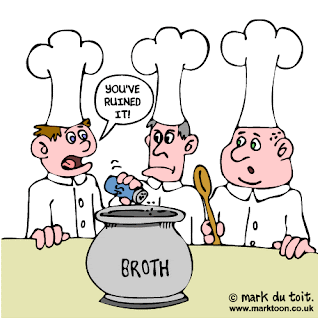What do you do when you receive conflicting opinions on your manuscript from beta readers, critique partners, or even agents and editors?
The answer? Well, there is no finite answer. You simply have to follow your instinct. Lame, I know, but that’s all I’ve got.
I find revision ping-pong happens frequently in forums and large critique groups. Someone posts a first chapter or some pages. One person says something and then others jump on board based on that point and it becomes a suggestion frenzy. Sometimes comments regarding the same passage conflict and there are so many suggestions it’s impossible to know which one to take. Then, the writer ends up changing things that are working and adding things that don’t in order to please others.
The same can be true of agents’ suggestions. One told me the pace in my opening scene was too slow, another too fast and a third said it was okay but listed a billion other things. All wanted revisions. I had no idea what to make of it.
Subjectivity. That’s what I ended up making of it. Many aspects of publishing are subjective. Every reader is different. They bring to the table their own preferences and biases. Just as each writer does.
Where do you start when you have conflicting opinions?
First, as with all criticism, do not take it personally or you cannot objectively evaluate the input. Then, consider the source. How well do you know this person? What are his/her qualifications?
Some of my favorite beta readers are teens familiar with my genre. They are not writers at all, but they don’t critique my work; they simply give me overall impressions and pinpoint voice inaccuracies. My critique mates, on the other hand, are excellent writers who write different genres, but are familiar with mine. I like critique partners who are in a similar place career-wise or further ahead.
Still, even with skilled writers as crit partners and betas who are knee deep in my genre, I come across this conflicting suggestion problem. Who do I believe?
Me. That’s who.
I step back for a day or two, sometimes a week, and then read over the suggestions again. Often, that’s enough. The time away has let me sort out how I feel about it, divorcing my preferences and vision for the story from what others say. Most of the time when I come back over it, I clearly see why the suggestions were made and I am in accord with the changes because they fit my vision but make the project stronger. The time away also allows me to sort out the comments that are contrary to my goal. Remember that not all suggestions are good ones for your story.
So, I guess my advice is to consider what folks say, but don’t forget to take into account the most important opinion: that of the writer—you. Don’t let too many cooks spoil the broth.

10 comments:
I experienced a lot of this while in my MFA program. There were 12 of us in the workshops each semester. Most of the time, my classmates gave me similar comments but sometimes they would conflict and I had to do exactly what you're saying here--step away from my piece for a couple of days, then read everyone's comments and figure out what changes seemed right to me.
Great post!
Yes, too many cooks spoil the soup. I've found, like you, to take at least a few days and let all the crits stew. Then I pick the best of them and go from there.
No one else has your vision of the book in mind so it is very subjective. And hard to decide which crits deserve the most merit.
I look for trends in the critiques and address those first. If several people think a sub plot is distracting, or don't understand a character's motivations, then it needs to be addressed (however awesome I think the sub-plot is, or no matter how clear I think the motivations are).
One-off comments are weighed individually, and I am the judge. I may ask a different critter for a second opinion if I am torn.
A great post!
I always look at the suggestion, but I think of it as "Is this someone's personal opinion or a flaw in the story?" If just one person suggests something, but it would ruin the story, I often disregard. But if several people see the same flaw then I always fix. With me, it is more a matter of numbers. The more people mention something, the more likely I am to fix. That is why I think having a large number of people read your story is so important.
Great Post!
I experienced this and when on full lockdown. I didn't know my butt from a hole in the ground. But thankfully I chose a path and moved forward. Thanks for confirming there is not real answer.
Doh! Two grammar errors; homonym and left out word. Let's make it like a game and see if you can pick them out. :o)
Oh the shame in not editing before pushing the PUBLISH YOUR COMMENT button.
Ha, Dana. Story of my life. Thanks for the comments everyone.
One way to look at it is: if several people are commenting on a scene, it needs to be looked at. Even if they all offer conflicting suggestions, they're all telling you something isn't working there. Then it's up to you to figure out what's not working and fix it yourself.
I also look closely at spots where people have said they were confused or where their crit suggests they misunderstood something. Perhaps things could be made a bit clearer.
Fantastic advice, BJ. Thanks for the comment!
Post a Comment